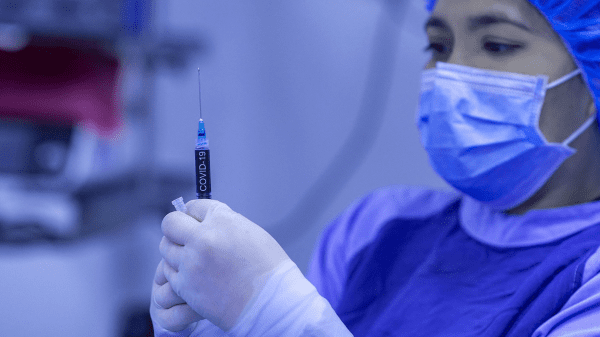What’s a coronavirus vaccine worth? If you believe the Kroger BB #:100073 supermarket chain, it’s $100.
That’s what it’s paying employees to get the vaccine, the Reuters news agency reported on February 5.
The company said it would also invest an additional $50 million in rewards for associates, including a $100 store credit and 1,000 fuel points for hourly staff, Reuters reported.
Kroger operates banners including Ralphs, Dillons, Smith’s, King Soopers, Fry’s, QFC, City Market, Owen’s, Jay C, Pay Less, Baker’s, Gerbes, Harris Teeter, Pick ‘n Save, Metro Market, and Mariano’s.


Kroger is joining an increasing number of retailers who are offering premiums to employees who receive the vaccine.
Kroger’s offer is more generous than Aldi BB #:116756. Last month the German-owned chain announced that it would “cover costs associated with vaccine administration and will provide employees with two hours of pay for each dose they receive, up to four hours total, as well as scheduling flexibility for salaried employees.”
If you assume a worker’s hourly wage is $15 and that two injections are required, Aldi is willing to pay employees $60 to be vaccinated for the virus.
Trader Joe’s BB #:162286 offer is similar to Aldi’s. On January 14, “the Monrovia, California-based grocery chain said that it would give employees two hours of pay per dose for getting the vaccine” and would also “shift around schedules to make sure employees have time to get vaccinated,” according to USA Today.
Instacart, “the leading online grocery platform in North America, today” according to its PR, made a similar announcement in mid-January, although its offer was a thriftier $25 per in-store shopper.
Then there’s the question of who is in line to get the vaccine. You will probably hear these terms often in the next couple of months for phases of eligibility as recommended by the Centers for Disease Control:
Phase 1a
Healthcare personnel and residents of long-term care facilities.
Phase 1b
“Frontline essential workers such as fire fighters, police officers, corrections officers, food and agricultural workers, United States Postal Service workers, manufacturing workers, grocery store workers, public transit workers, and those who work in the educational sector (teachers, support staff, and daycare workers.)
“People aged 75 years and older because they are at high risk of hospitalization, illness, and death from COVID-19. People aged 75 and older who are also residents of long-term care facilities should be offered vaccination in Phase 1a.
Phase 1c
“People aged 65-74 years because they are at high risk of hospitalization, illness, and death from COVID-19. People aged 65-74 years who are also residents of long-term care facilities should be offered vaccination in Phase 1a.
“People aged 16-64 years with underlying medical conditions which increase the risk of serious, life-threatening complications from COVID-19.
“Other essential workers, such as people who work in transportation and logistics, food service, housing construction and finance, information technology, communications, energy, law, media, public safety, and public health.”
In short, grocery store workers are eligible for vaccination in areas where phase 1b is being implemented; foodservice employees will have to wait for phase 1c.
Check your local health authority to see where your region is in the process.



